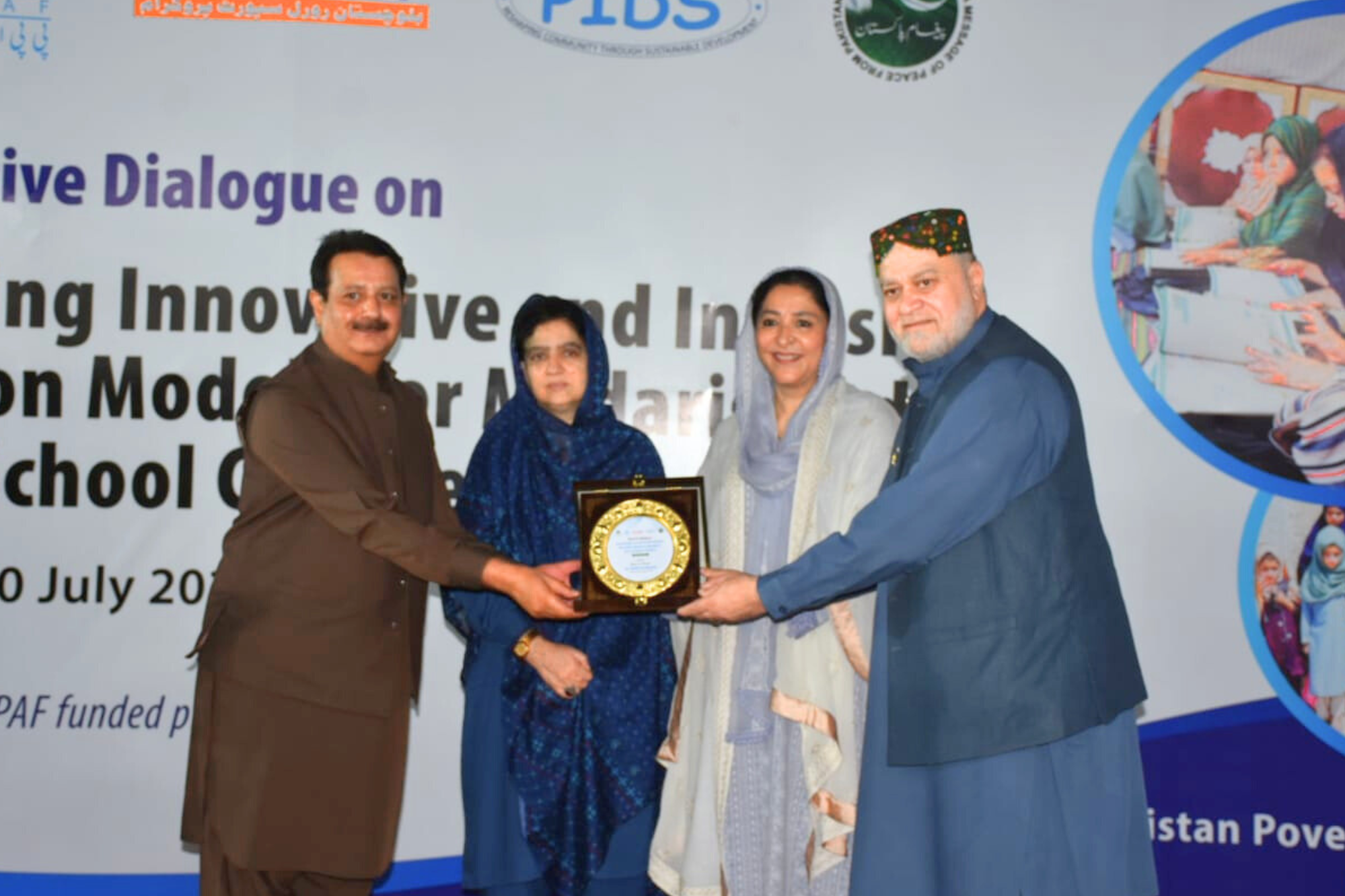Inclusive Education and Harmony Take Centre Stage in Quetta Dialogue
Quetta (July 30 2025)

Quetta, July 30, 2025: Recognising the urgent need to bridge education gaps and promote inclusive learning, an interactive dialogue on “Promoting Innovative and Inclusive Education Models for Madaris and Out-of-School Children” was held today in Quetta. The event spotlighted the efforts of the Pakistan Poverty Alleviation Fund (PPAF) through its two flagship initiatives: the Bridging Educational Polarization for Social Harmony and the Innovative Project for Out-of-School Children (Chamalang Project) implemented in partnership with Balochistan Rural Support Programme (BRSP) and Participatory Integrated Development Society (PIDS) respectively.
Organised to foster dialogue around inclusive and innovative education approaches and to chart a roadmap for collaborative action, the event brought together the leadership of partner organisations, government representatives, civil society, and project beneficiaries.
Addressing the gathering, Wajiha Qamar, Minister of State for Federal Education and Professional Training, who graced the event as Chief Guest, praised the projects for their far-reaching impact. She said “Inclusive education is not just a right — it’s the foundation for a peaceful, progressive, and skilled Pakistan. Our mission extends beyond access to ensuring quality. We are paying a strong emphasis on skill development.” The Minister underscored the importance of integrating religious seminaries into the formal education system through registration with the Directorate General of Religious Education (DGRE), enabling them to access benefits and contribute more meaningfully to the national education landscape. She also appreciated the role of Paigham-e-Pakistan, Dukhtaran-e-Pakistan, and Saiban-e-Pakistan in promoting peace and national cohesion. In a spirit of unity and patriotism, she applauded PPAF’s efforts to commemorate more than 2000 Independence Day events nationwide under the unified slogan of Marka-e-Haq to honour the country’s journey and reaffirm its commitment to progress and peace.
Furthering the federal government’s commitment, Syed Imran Ahmed Shah, Federal Minister for Poverty Alleviation and Social Safety Division stated “Education and inclusion are critical pillars in our fight against poverty. The federal government is deeply invested in the sustainable development of Balochistan, and we are open to dialogue and collaboration with partners who share this vision.” He also lauded PPAF’s capacity to scale impactful initiatives and extended his support for its efforts in driving change where it is needed most.
Adding to the spirit of inclusivity, the event also witnessed participation from a diverse group of religious scholars, including representatives from Sikh, Christian, and Hindu communities — a true display of interfaith harmony in action.
Highlighting the need for context-driven interventions, Raheela Hameed Durrani, Minister for Education, Balochistan remarked “High dropout rates is closely linked to poverty, especially among girls.The solution lies in collective action. When like-minded stakeholders come together, progress accelerates, and the quality of solutions improves. Balochistan welcomes such partnerships that prioritise the needs of our most vulnerable children.”
PPAF, in partnership with BRSP, is implementing the Bridging Educational Polarization for Social Harmony project to engage religious seminaries in mainstream education and foster interfaith harmony through model worship places, study tours, seminars, and capacity-building workshops. Whereas, the Chamalang Project, implemented with PIDS, focuses on supporting the children of coal mine workers in remote areas like Loralai helping them access quality education and skill enhancement support to secure brighter futures.
The leadership of PPAF, BRSP, and PIDS also took the stage to reflect on the impact of these initiatives. They reaffirmed their commitment to strengthening inclusive education models, promoting interfaith harmony, and ensuring that no child is left behind, regardless of background or circumstance. Mr. Nadir Gul Barech, CEO of PPAF shared his sentiments by highlighting how these efforts are a contribution towards the growth and stability of Pakistan. “At PPAF, we believe that inclusive education is a powerful tool for social cohesion and long-term development. Engaging madaris in inclusive education and dialogue is essential to building a more tolerant, cohesive, and forward-looking society. Through mutual respect and shared learning, we can bridge divides and promote values that unite us. We remain committed to working hand in hand with communities, partners, and the government to ensure no child is left behind.”
The event also gave a platform to project beneficiaries to share personal stories of transformation. From enrolling in school for the first time to completing vocational training, their journeys reflected the life-changing potential of access to education and skills.
The event closed on a hopeful note, with all stakeholders reaffirming their commitment to expanding inclusive education, fostering coexistence, and creating equal opportunities for children across Balochistan and beyond.